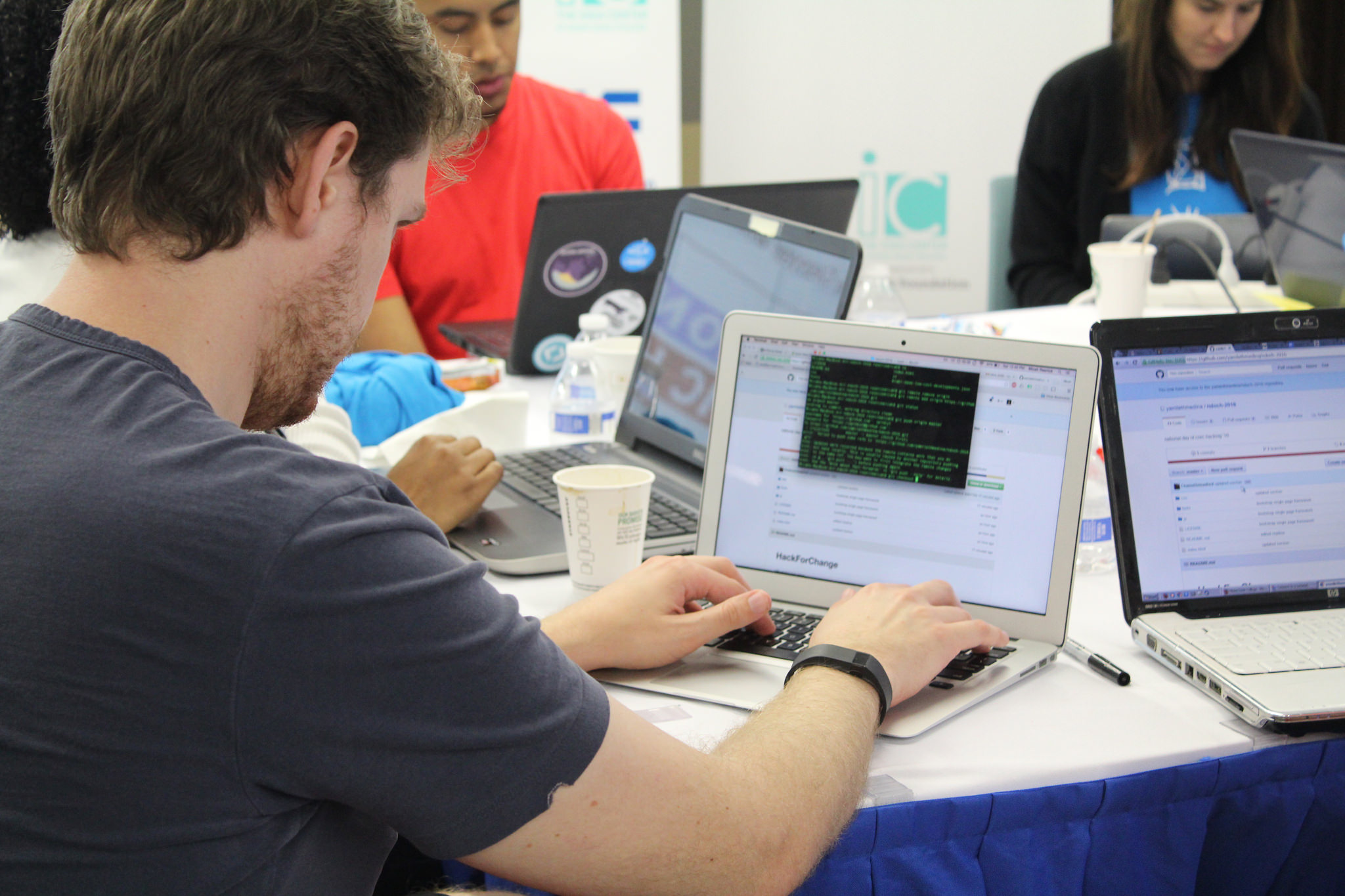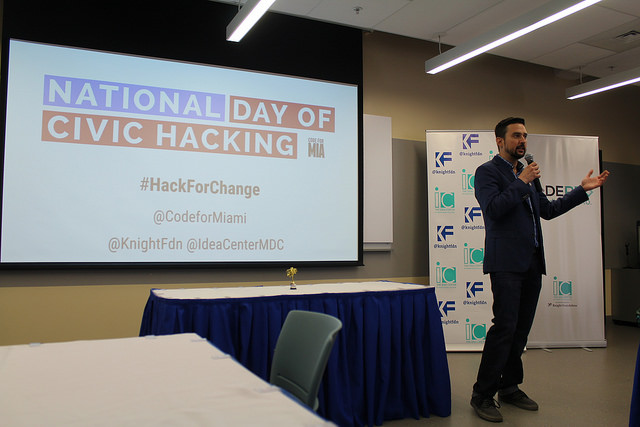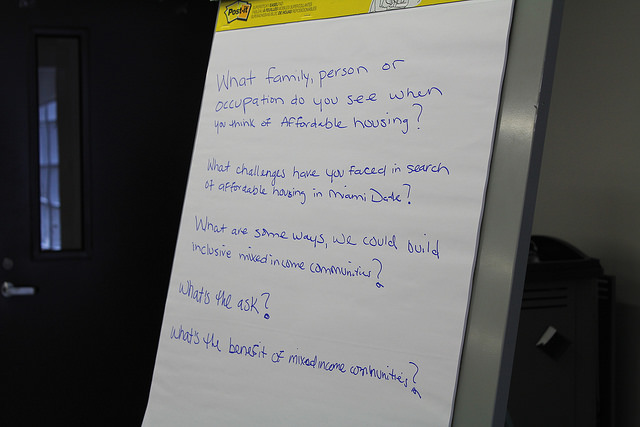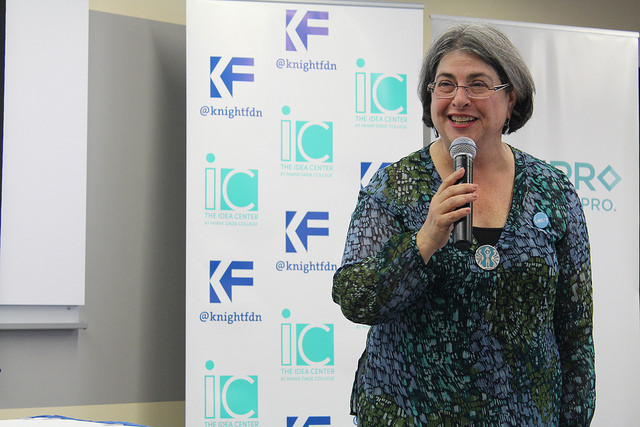
National Day of Civic Hacking teams explore better ways for government, residents to interact
National Day of Civic Hacking in Miami. All photos by Glissette Santana on Flickr.
Three cities in 24 hours were on DJ Patil’s itinerary this past weekend; two of them were Knight communities.
Patil, chief data scientist in the Office of Science and Technology Policy for the White House, flew to St. Louis, Charlotte, North Carolina, and Miami in honor of National Day of Civic Hacking. These three cities were recommended by Code for America because they had experienced brigades (Code for America’s way of referring to local chapters) and because they could hold quality events, said Christopher Whitaker, brigade program manager for Code for America.
The fourth annual event, organized nationally by Code for America and locally by Code for Miami, brought together developers, hackers, local residents and government staffers to help local communities better interact with government. Knight Foundation supported events in Charlotte and Miami.

City of Miami Chief Innovation Officer Mike Sarasti speaks about open data at National Day of Civic Hacking hosted by Code for Miami and sponsored by Knight Foundation. Photo by Glissette Santana.
Miami’s event, one of over 100 held across the U.S., was hosted Saturday by Code for Miami, a volunteer civic hacking group, at The Idea Center at Miami Dade College.
“If there’s one place that we’re seeing data takeover and change the landscape of the entire world, it’s happening at the local layer,” Patil said to participants Saturday night in Miami, his final stop before heading back to D.C.
Civic hacking is the act of quickly improving the processes and systems of local governments with new tools and approaches, according to the Code for America website.
In Miami participants worked together on different projects in four categories: applying for affordable housing, business license and criminal record, and the Ready to Work Español challenge, which helps immigrants acclimate themselves to the United States. Another option was joining the Miami-Dade Civic User Testing Group, a 2016 Knight Cities Challenge winner working on improving civic technologies through user insight.

Participants could also pitch to everyone for the chance to advance an ongoing project or idea they had.
Ernie Hsiung, a software engineer at Rackspace, co-captain of Code for Miami and a member of the Miami-Dade Civic User Testing Group, said that collaboration is one of the essential elements of the National Day of Civic Hacking.
“We want people … to know they can be engaged with government [and] their communities through technology,” Hsiung said. “…we can basically get [community members] and technologists who are usually in very different worlds in the same room to figure out how to solve problems and how to talk about the problems.”
Miami-Dade District 8 commissioner Daniella Levine-Cava, an “early adopter of tech,” gave opening remarks to the crowd, pushing for data to be more accessible to the public.

Commissioner Daniella Levine-Cava speaking at Miami’s National Day of Civic Hacking.
“Our data is not accessible, not available,” Levine-Cava said in her remarks. “It’s driven by [the public]. If you want to know things … get to it and get your friends asking for it. That’ll help open up data.”
Code for Charlotte hosted the event in the Queen City. Jill Bjers, executive director and co-captain of Code for Charlotte, said that about 15 participants who were new to civic hacking also participated.
In addition to Patil, Charlotte also had guest speakers from Queens University and Expedition STEM.
But no matter where National Day of Civic Hacking was being hosted, the message of building bridges between the community members and the government stayed the same.
“The dirty secret is … it’s not about building the next prototype,” Hsiung said. “It’s about being able to have everyone here and figuring out what they can build and how they can build it.”
Glissette Santana is an editorial intern at Knight Foundation. Email her at [email protected] and follow her on Twitter @glissettetweets.
Recent Content
-
Community Impactarticle ·
-
Community Impactarticle ·
-
Community Impactarticle ·


